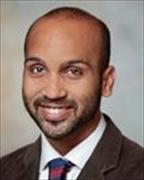Measuring Poverty Better to Strengthen Tuberculosis Research
Tuberculosis (TB) has long been recognized as a disease of poverty, yet most TB research does not measure poverty in a meaningful way. A new review in the journal BMC Global and Public Health examines existing methods for assessing socioeconomic status in TB studies and highlights their shortcomings. The authors call for better, standardized poverty metrics to improve research and policy.
Led by researchers from Boston University Chobanian & Avedisian School of Medicine, Brown University and Oxford University, the review explores different ways poverty has been measured in TB studies—including income-based measures, wealth indices and multidimensional poverty indices (MPIs). The authors found that many commonly used tools fail to capture key aspects of deprivation relevant to TB risk and treatment, such as food insecurity, overcrowded housing and access to healthcare.
 Pranay Sinha
Pranay Sinha“Poverty isn’t just background context—it’s central to understanding who develops TB and who struggles with treatment,” says corresponding author Pranay Sinha, MD, assistant professor of medicine at Boston University. “Yet, many TB studies rely on outdated or oversimplified measures of socioeconomic status, limiting what we can learn and how we respond.”
As part of the review, the researchers also assessed how frequently observational TB studies accounted for poverty and found that of the 100 most recently published observational TB studies, nearly 70% did not include any measure of socioeconomic status. According to the authors, this lack of measurement can lead to misinterpretations of TB risk factors and policies that fail to reach the most vulnerable.
“If we don’t measure deprivation well, we can’t address it effectively,” said co-first author Chelsie Cintron, MPH, a third-year doctoral student at Brown University and a senior research study coordinator at Boston Medical Center. “We found that most TB research does not include even basic socioeconomic data. That’s a missed opportunity because poverty affects every stage of the TB journey—from exposure to treatment outcomes.”
The researchers argue that adopting tools like the global multidimensional poverty index – which has been refined and applied in various contexts by co-senior author Jakob Dirksen MSc, MPP, a research and policy officer at Oxford Poverty and Human Development Initiative – could lead to more targeted interventions and stronger policy recommendations.”